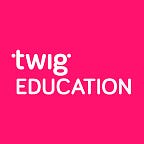Not Just Hands-On
A scientist is posed with the question of how the changes in climate are impacting rainforests. How will they go about researching this? Needless to say, there are many steps involved, but it wouldn’t be surprising for them to seek out and study papers that had been published in scientific journals related to the topic. They might also speak with other scientists doing similar studies, and/or gird up any areas in which they feel their background knowledge may need deepening.
Well, that’s interesting, isn’t it? All of that foundational work and the scientist hasn’t yet done a hands-on activity.
The instructional shifts associated with 3-D science standards are significant. While no one is disputing the value and necessity of hands-on investigations, it’s worth considering that, in order to get our students taking a scientific approach to investigations, we have to help them to be successful in areas other than hands-on experimentation.
Language Routines
In order to design, develop, and execute their own experiments, students have to be comfortable with academic reading, writing, speaking, and listening skills. The Stanford Center for Assessment, Learning, and Equity (SCALE) Language Routines are designed to support your instruction and your students’ success. Let’s take a look at one example.
Stronger and Clearer Each Time
This is an extension of the “Turn and Talk” routine that you may already be aware of. “Stronger and Clearer Each Time” allows students to help each other to revise and refine their ideas through paired conversations.
The SCALE Language Routines are just one way that Twig Science supports your students. For more information on the routines or on what Twig Science has to offer, read more of our blog articles and visit our website.
Originally published at https://twigeducation.com on February 2, 2021.
